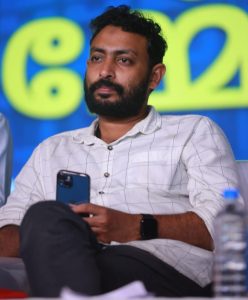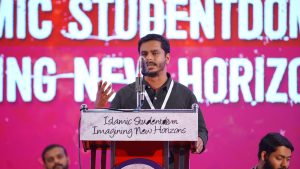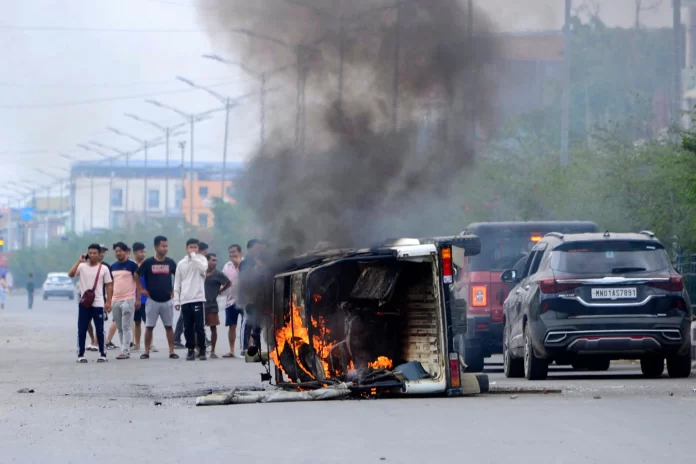SYED AHMED ALI engages in a conversation with prominent youth leaders from a leading Muslim organization, shedding light on the unrest in Manipur. Delving into the heart of the matter, these young voices articulate the causes behind the turmoil and offer potential solutions, providing a thought-provoking perspective on the complex situation.

SUHAIB CT, Chairperson, National Federation of Youth Movement:
What has happened and is happening in Manipur is not an accidental incident. It is not a clash between two groups, but an ongoing state-sponsored genocide.
What is occurring under the guise of a riot is, in fact, a targeted assault on Christians. Churches belonging to Christian tribal groups have been systematically attacked and destroyed.
There are several factors contributing to the violence, with the core issue stemming from the Sangh Parivar itself. The Sangh Parivar is attempting to sow division among people based on caste and religion. Minorities, especially Muslims and Christians, are being subjected to attacks and humiliation in various states. The violence in Manipur has escalated into a genocide, resembling another iteration of the Gujarat Genocide.
The primary solution to such problems lies in implementing strict actions by both the central and state governments.
There needs to be a robust opposition alliance against the Hindutva state. All political parties opposing the Sangh Parivar, along with minority groups, should unite to improve the situation. This unity has the potential to overcome the BJP in the upcoming elections. Removing the BJP from power is the initial step toward restoring communal harmony, but it is not the final step. The divisions that have arisen in India under the influence of the Sangh Parivar are deeply ingrained. A comprehensive social and political solution is required.

SAMAR ALI, General Secretary, National Federation of GIO:
Ethnic cleansing of minorities has become a common trait in democratic India. It is truly shameful that on the 77th Independence Day we witnessed the sorrow and grief of Indian citizens in Manipur and Haryana.
The primary cause of the pathetic situation in Manipur is the lack of timely intervention from the state.
Over the years, India has experienced an immense amount of communal hatred and state-sponsored calls for genocide. This has normalised cruelty against fellow citizens.
Conscious efforts are required to reinstate peace in the North-Eastern part of the country. Additionally, the general public must be made aware of the necessity to develop and maintain a harmonious and healthy social structure.

RAMEES EDACHERIKKANDY, President of SIO India:
I believe that in many parts of India and around the world, there are numerous unresolved issues related to state formation and the development of modern states in various regions. This is particularly evident among tribal communities, religious groups, and ethnic communities, each of which has encountered distinct challenges during the process of hegemonic state formation. The situation in the northeast region is also closely tied to these concerns. Different tribal communities come into prominence when a state forms, resulting in their languages and ethnicities dominating the state. Other communities may feel marginalised, leading to resistance against state intervention or demands for specific protections. For instance, in Manipur, there has been a longstanding conflict between the Kukis, Meiteis, and Nagas, each demanding special protection from state intervention or specific special attention. Examples like Articles 370 and 371, and specific tribal and civil laws further illustrate these issues.
In the case of the Manipur incident, I suspect that RSS agents are manipulating this conflict for their own interests and ideological agendas. There seems to be a calculated effort to exacerbate this conflict, particularly by those in power who have pushed their own dominant agenda. This has led to the escalation of conflicts between the Kuki and Meitei communities. Instead of taking sides, the state and national governments should focus on resolving these problems. They need to engage with and address the specific demands and concerns of the communities involved. Both immediate and long-term solutions are required.
In the short term, the state should intervene to quell the ongoing conflict. The government should facilitate negotiations and discussions between the conflicting parties, encouraging them to come to the table and find a peaceful resolution. Military actions should be minimised. In the long run, understanding the root causes and addressing them is essential. Central and State governments, along with concerned stakeholders, should work together to comprehend and resolve these issues comprehensively.
In conclusion, a collaborative approach is needed to tackle the conflicts, settle questions, and address specific demands pertaining to the state. The government must play a neutral role, striving to bring about a peaceful settlement and fostering a conducive environment for dialogue and resolution.




